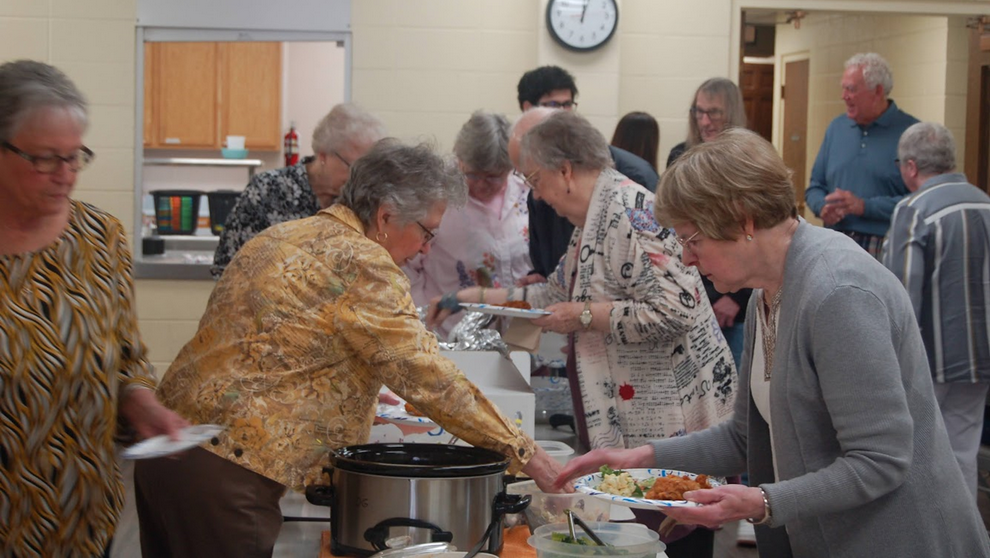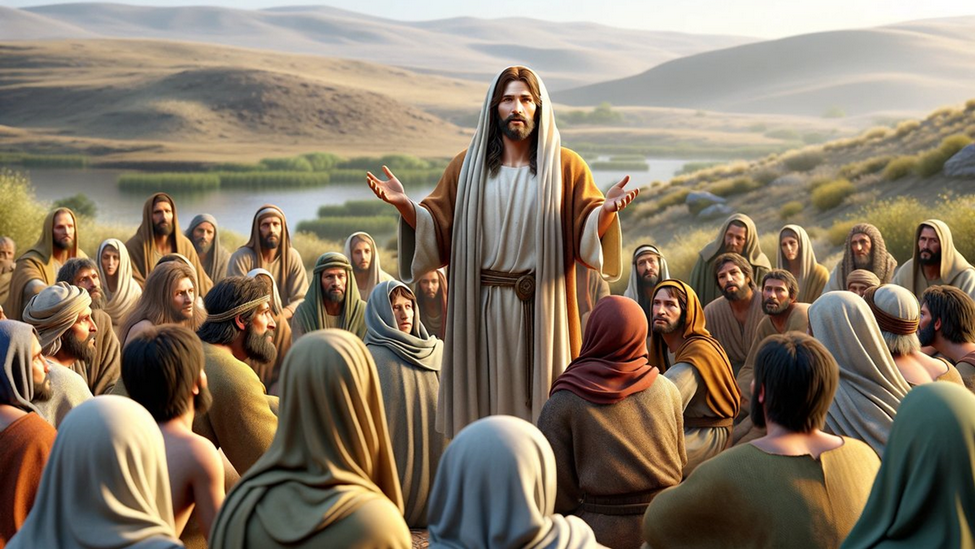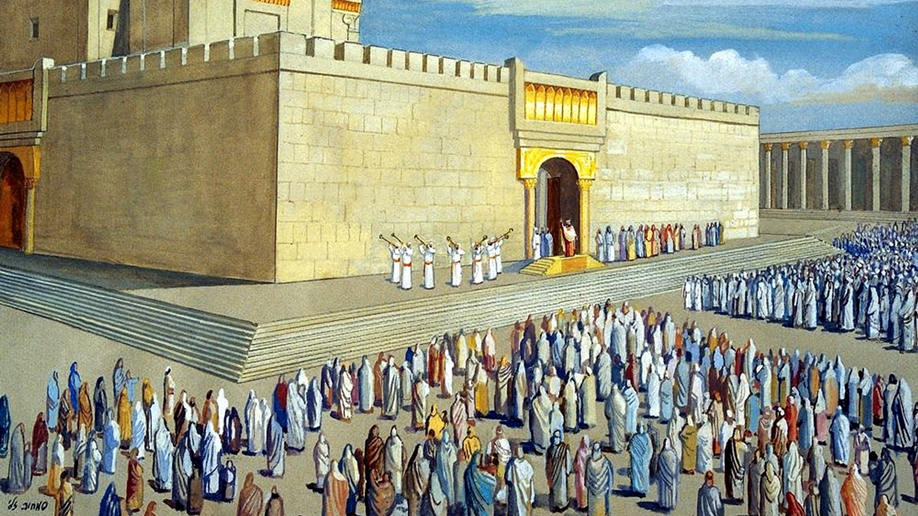Repent
OT Lesson: 2 Chronicles 7:11-16 (NIV)
When Solomon had finished the temple of the Lord and the royal palace, and had succeeded in carrying out all he had in mind to do in the temple of the Lord and in his own palace, the Lord appeared to him at night and said:
“I have heard your prayer and have chosen this place for myself as a temple for sacrifices. When I shut up the heavens so that there is no rain, or command locusts to devour the land or send a plague among my people, if my people, who are called by my name, will humble themselves and pray and seek my face and turn from their wicked ways, then I will hear from heaven, and I will forgive their sin and will heal their land. Now my eyes will be open and my ears attentive to the prayers offered in this place. I have chosen and consecrated this temple so that my Name may be there forever. My eyes and my heart will always be there.”
NT Lesson: Matthew 4:12-17 (NRSV)
Now when Jesus heard that John had been arrested, he withdrew to Galilee. He left Nazareth and made his home in Capernaum by the sea, in the territory of Zebulun and Naphtali, so that what had been spoken through the prophet Isaiah might be fulfilled:
“Land of Zebulun, land of Naphtali,
on the road by the sea, across the Jordan, Galilee of the Gentiles—
the people who sat in darkness
have seen a great light,
and for those who sat in the region and shadow of death
light has dawned.”
From that time Jesus began to proclaim, “Repent, for the kingdom of heaven has come near.”
Sermon
Introduction
Good morning! It is finally May, and we are blessed with wonderful, lovely weather. We have long awaited these sunny days, and while we are thankful and enjoying this delightful weather, let us also keep in our prayers those affected by extreme conditions. Many regions in Europe and Asia are currently grappling with unseasonal heat waves, temperatures soaring above 100°F. In the United States, Nebraska, Texas, Kansas, and other states have experienced numerous tornadoes. Additionally, Texas has been dealing with severe flooding due to heavy rains. Elsewhere, massive floods and landslides in Brazil and Kenya have resulted in numerous fatalities and hundreds missing. So, as we give thanks for our own good weather, let us remember those in distress in our prayers.
Last week, the weather was so pleasant that Samuel’s teacher shared on ParentSquare—the platform for teacher-parent communication—that the students enjoyed three recesses in one day. Engaging in outdoor activities is beneficial not only for children but for everyone. So, I encourage you to take advantage of this beautiful weather. Go outside as often as you can for some fresh air and physical activity.
Marriage Life
Last week, on another splendid day, Hannah set off for work only to call me ten minutes later with car trouble. She had to pull over on the shoulder of the ramp from South Street to I-65 South bound because her front driver-side tire was badly torn and completely flat. I rushed to her aid, and as soon as I arrived, Hannah took my car and headed to work, leaving me with the disabled vehicle. I wonder if that is some kind of hijacking or not.
I found myself stranded with her car for two hours because I couldn’t locate the spare tire in the trunk. Eventually, I called AAA for help. It turns out, the spare tire was ingeniously stored underneath the vehicle, not in the trunk as one might expect. Thankfully, despite the delay, Hannah was not really late for work. I guess that is one of the perks of having a husband.
Speaking of marriage, it is a known fact that no human relationship is perfect. For example, Hannah and I have had our fair share of disputes during our twelve and a half years of marriage, often revolving around the same issue repeatedly—sharing food. This might sound trivial, but it underscores deeper cultural differences between us. Biologically, both of us are Korean, but I grew up in Korea, while Hannah was raised in Chicago, which has led to different cultural attitudes. Growing up, I experienced real hunger until I started working and earning my own money. Growing up, I was told million times that we must share with everybody even one grain of rice.
Hannah, on the other hand, never experienced such deprivation. In her upbringing in America, the norm was ‘I have my food, you have your food; we eat separately.’ To me, offering and sharing food is a fundamental human duty, while to Hannah, it is natural for everyone to eat their own. When we were newly married, we stopped at a McDonald’s drive-through where Hannah bought French fries and ate them all without offering any to me. Since then, we have argued over food sharing countless times, even just a few days ago.
It is fascinating how these disputes recur, differing only in how we express our frustration or try to explain our perspectives. Sometimes I begged her. Sometimes I explained it to her nicely. Sometimes I poured out my frustration at her, and so on. Perhaps, this cycle will continue indefinitely over the same issue again and again repeatedly.
Repeating Message
As we discussed last Sunday, Jesus began His ministry with a profound yet simple proclamation: “Repent, for the kingdom of heaven has come near.” You might consider this message brand new and revolutionary, especially coming from Jesus—not just another prophet, but the very Son of God, the promised Messiah. Given that Jesus is declared superior to angels, Moses, and all others in our current Saturday Bible study of the Epistle to the Hebrews, one might expect His message to be radically different from anything heard before. The Epistle emphasises that while the Old Testament is a shadow, the New Testament reveals the substance; thus, the Messiah’s message should be groundbreaking.
However, if we look closely, we find that Jesus’s call to repentance aligns with that of John the Baptist. In the preceding chapter of Matthew, John the Baptist also declares, “Repent, for the kingdom of heaven has come near.” This message is not unique to John the Baptist either; it is a profound echo of the prophetic voices throughout the Scriptures. Prophets like Isaiah, Jeremiah, Ezekiel, Joel, Hosea, and Malachi all called for repentance. They urged the people to return to God, to renew their hearts and lives in alignment with His will.
Even Moses, after the Israelites sinned with the golden calf, called the people to repentance, as recorded in Exodus 32. Leviticus 26 outlines a covenant that pivots on obedience: blessings follow obedience, while consequences follow disobedience, yet it always leaves room for restoration through repentance: “If they confess their iniquity and the iniquity of their ancestors…if then their uncircumcised heart is humbled and they make amends for their iniquity, then will I remember my covenant…I am the Lord.” Similarly, Deuteronomy 30 reinforces this call: “Return to the Lord your God, and you and your children obey Him with all your heart and with all your soul, just as I am commanding you today, then the Lord your God will restore your fortunes and have compassion on you.”
Thus, from Genesis to Revelation, the persistent theme is one of repentance. This is not a novel idea introduced in the New Testament but rather the oldest and most consistent message in the Bible. As Solomon wisely observed, “There is nothing new under the sun,” this truth applies even to the divine message of repentance. What varies is not the message itself, but how it is delivered—sometimes through gentle explanation, sometimes through urgent pleading, sometimes with stark warnings of judgment, and at other times with reassuring promises of redemption and inclusion in the kingdom of God. Each prophet, including Jesus, brought their unique voice and context to this timeless call, shaping it according to the needs of their listeners but never altering its core imperative: Repent.
Temple’s Message
King Solomon, succeeding his father David—who was denied the opportunity by God—built the temple in Jerusalem. Before the temple’s completion, the worship place for the Israelites was a tent known as the tabernacle. After seven years of meticulous construction, the temple was finally completed, marking a significant moment in the history of Israel’s worship.
On this historic day, God Himself communicated a profound message to His people. Given the recurring biblical theme, you might anticipate what this message entailed. Indeed, it emphasised repentance. Let me share this powerful directive from God, as it underscores the continuous call to return and renew:
“I have heard your prayer and have chosen this place for Myself as a temple for sacrifices. When I shut up the heavens so that there is no rain, or command locusts to devour the land or send a plague among My people, if My people, who are called by My name, will humble themselves and pray and seek My face and turn from their wicked ways, then I will hear from heaven, and I will forgive their sin and will heal their land. Now My eyes will be open and My ears attentive to the prayers offered in this place. I have chosen and consecrated this temple so that My Name may be there forever. My eyes and My heart will always be there.”
This message encapsulates a covenant of restoration and divine presence which was declared by Moses in Leviticus 26. It is not merely a call to repentance; it is a promise of renewal and healing. It illustrates that when the people turn back to God with humility and sincerity, seeking His face and turning from their sins, God responds with forgiveness, healing, and an enduring commitment to hear their prayers. This temple, now consecrated and set apart, would forever be a symbol of God’s presence and His attentive regard for His people. It is a reminder that the heart of worship and the essence of our relationship with God lies in our continual repentance and heartfelt return to Him.
What Is Repentance
Discussing repentance is crucial because it represents not only the first message of Jesus but essentially the central theme throughout the Bible. Theologically, repentance is a profound concept, and while I wish I could explore its depths fully, our time today allows for only a brief overview.
To repent fundamentally means to say sorry—to acknowledge when we have displeased God and to express remorse. This extends to how we interact with others as well; when we hurt someone, whether physically or emotionally, it is crucial to apologise. However, repentance goes beyond mere words. There is a well-known saying, “Actions speak louder than words.” True repentance involves demonstrating our sincerity through our actions.
How do we show repentance? It means not repeating the harmful actions we previously committed. In today’s lesson from the Old Testament, God calls us to repent and to turn away from our wicked ways. Thus, to repent means to turn from evil, to genuinely amend our ways and not repeating the bad things. If we apologise to someone but then continue to harm them in the same way, that is not repentance but hypocrisy.
Hebrews 10 addresses this by saying, “If we wilfully persist in sin after receiving the knowledge of the truth, there no longer remains a sacrifice for sins but a fearful prospect of judgment.” It is important to note that this passage is not referring to mere mistakes, which we might repeatedly make despite our best efforts; God’s grace covers these instances. The warning in Hebrews concerns persisting in sin wilfully, intentionally, and knowingly. In such cases, mere verbal repentance is not enough for forgiveness.
Forgiveness is not automatically granted whenever we apologise with our lips. True forgiveness is intertwined with sincerity. It requires that our apologies be genuine and that we demonstrate our repentance through a tangible change in behaviour. Only when our actions reflect our words can we truly find forgiveness and reconciliation, both with God and with those we have wronged.
Conclusion
Friends, God calls us to repentance—this is a message echoed by Jesus Himself. So, whenever we stray from God’s path, let us return to our Saviour, who is rich in mercy and grace. Whenever we find our souls in need of nourishment, let us come back to the Lord’s table to commune with Christ Jesus. But remember, true repentance is not merely about moving our lips; it involves a synthesis of sincere hearts and truthful actions.
When we truly repent, as Jesus promises today, we will find ourselves within the kingdom of God, which is near at hand. And when we earnestly turn back to God, as God has assured us today, He will listen to our prayers and bring healing in every aspect of our lives. Amen.







Comments
Post a Comment